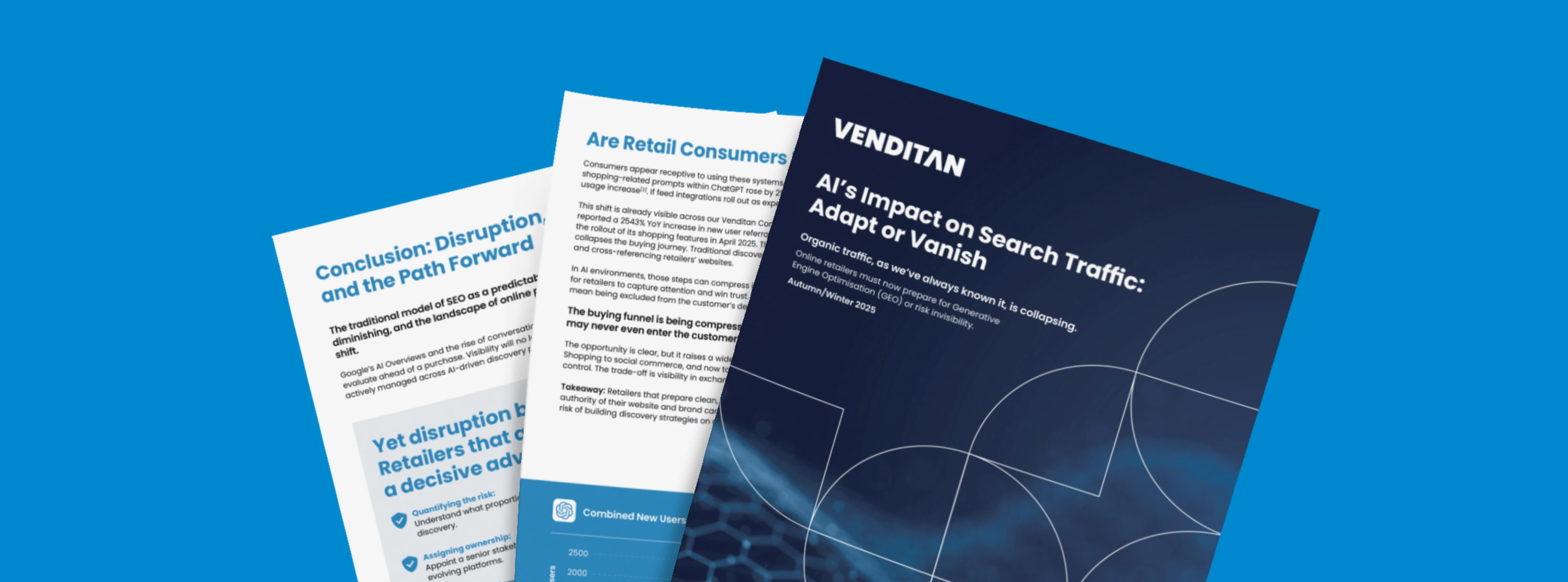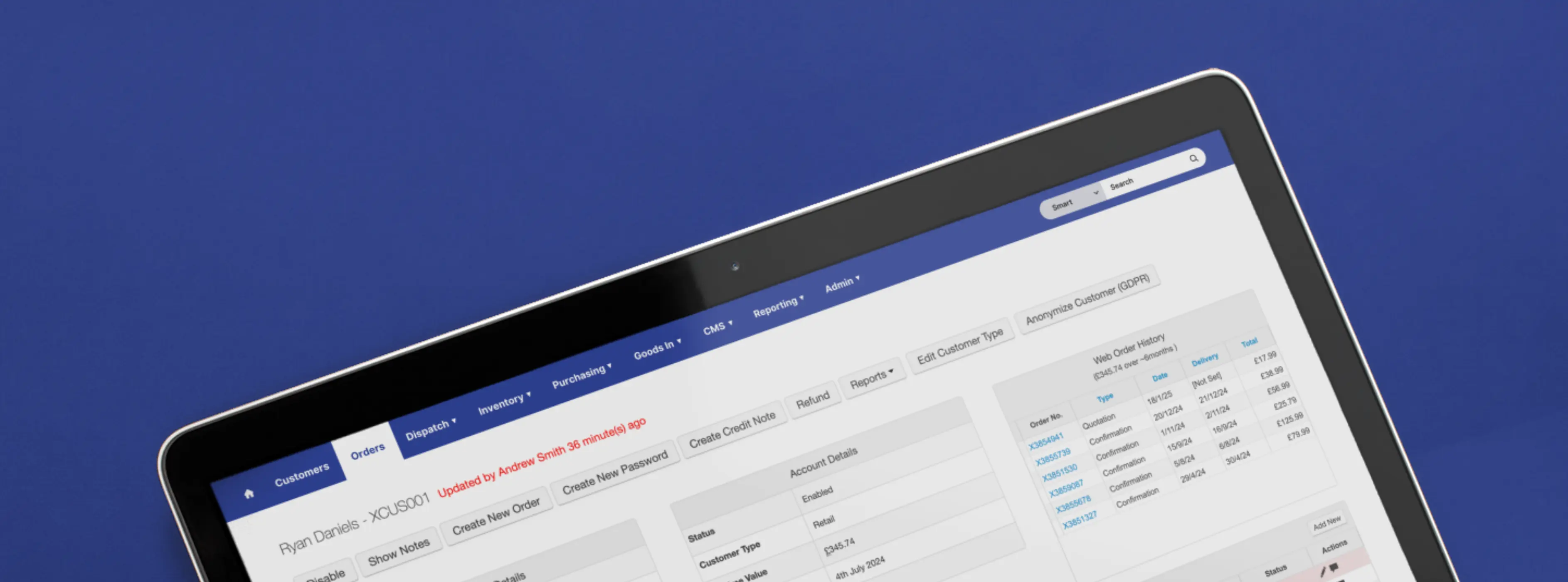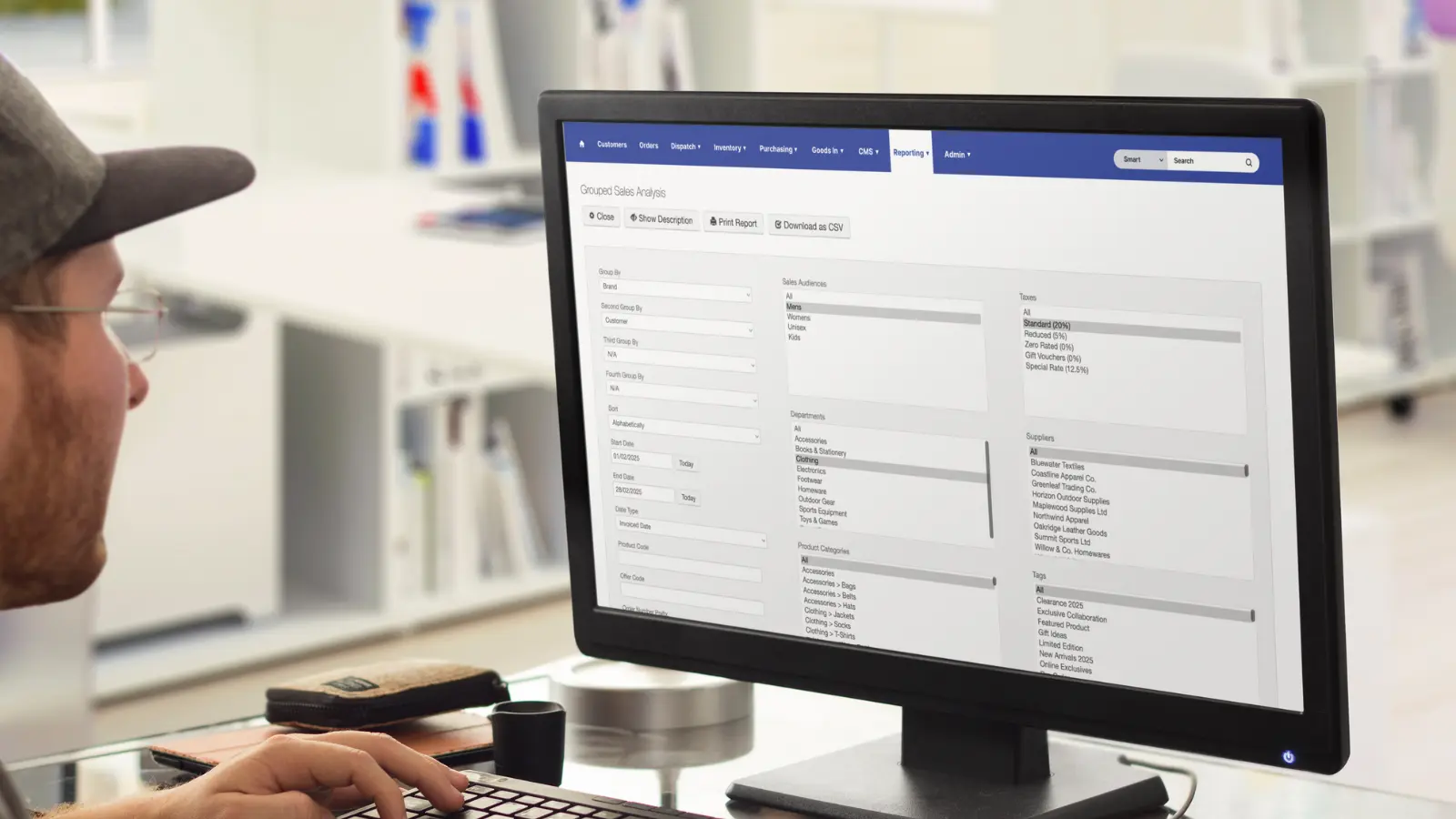Choosing the best eCommerce platform for your business is one of the most important decisions you’re going to have to make. Using the right eCommerce software to support your business is fundamental to your success. Getting this wrong can cause issues and disrupt your entire operation.
We’re going to go through a few pointers and equip you with the knowledge to help you with the decision-making process. Deciding on an eCommerce platform that works for you and helps you grow, scaling with you at the same time is something that you simply can’t afford to get wrong.
You may be thinking it’s best to opt for the most well-known name in eCommerce software, but popularity is not always a good indicator. It’s not about what company has the biggest or best market share, but what’s best for YOUR business. It isn’t an easy decision to make, we get that, so you need to really think about what your business needs, and what functionality and support you need from your software provider in order to fulfil those objectives and meet your goals.
Many retailers are still using legacy systems and old inhouse builds that are very limited and clunky. Typically they’re not scalable or flexible with your business needs. Today, there are many specialised options out there on the market for you to choose from but these are very fragmented in functionality. Many rely on different plugins and systems to work for all parts of retail businesses; expensive add-ons and extensions for basic things that end up costing you excessive amounts to be running a basic level of functionality.
Let’s take a look at some of the most important things you need to consider when picking the best eCommerce platform for your business including a checklist.
Will it help you achieve your goals?
Your new eCommerce platform needs to deliver on your business objectives and goals. If it doesn’t meet these basic requirements and enable you to do so, it’s time to look elsewhere.
Does it fit well with yours, and your teams, level of technical knowledge?
You shouldn’t have to be a top-level developer in order to use your eCommerce platform. It’s not ideal if it takes a lot of specialised knowledge to navigate. Your platform needs to work for you and be super simple to use and understand. Similarly, you need to consider all users. What teams will be using your new eCommerce platform, and what functionality do they require day-to-day? How tech-literate are they? Consider your current platform’s capabilities and the changes that will affect them by moving onto a new eCommerce platform.
Will it scale with you as you grow?
Your eCommerce platform should be flexible and technologically advanced enough to scale with you as your business grows.
Make sure you use a trusted vendor
Don’t just take a company’s word for how good they are! Check out their previous work and case studies; have they successfully worked with companies in your industry? Does their technical skill meet your requirements?
Is it SEO friendly?
SEO is a big part of selling online, and your eCommerce platform should be SEO friendly. But beware – many platforms out there claim to be ‘SEO friendly’ without actually delivering on this.
Look for things like:
- SEO optimised URLs, where your platform allows you to use keyword-rich URLs. For example; /white-cotton-dress rather than /productid-12345.
- Allow you to set up 301 redirects – particularly important in eCommerce so you can redirect traffic from your deleted product pages to new ones.
- Automated XML sitemaps which will let Google bots crawl your site more quickly, helping rankings.

What are the security features?
Check what security features are on offer to protect your site and your customer’s data. With increases in online fraud and data breaches as technology advances, it’s paramount that your data and customer data is safe and secure from hackers. So make sure you opt for an eCommerce platform that will go the distance in protecting you by actively seeking out security issues and rolling out regular security fixes.
Does it support multiple payment options?
The payments ecosystem is ever-growing and rapidly changing. You need to keep up with the latest eCommerce payment solutions for your customers to remain competitive. Make sure your eCommerce platform can facilitate multiple payment options; from the basics to digital wallets and the increasingly popular with consumers, buy now pay later options. If you trade abroad or want to expand to international eCommerce, you also need to consider your next eCommerce platform’s capabilities when it comes to trading overseas like local currency payment options.
What reporting tools does it offer?
With anything that supports your eCommerce function, you need great reporting tools that enable you to track performance. Most platforms do have this functionality. However, you need one that is both easy to use and understand, where you can create customisable reports that are tailored to your business. This will help you gain better insights into the data and real business impact.
Are there any hidden costs?
Finally, you need to consider the costs beyond the initial set up and migration. Find out about any hidden fees that might come up, what it will cost you month to month, server storage costs and plugin costs. These things are easy to overlook and often end up as rather unpleasant surprises further down the road. Cheaper options aren’t always what they seem and you can often find costs really rising over time.
Checklist questions to ask when choosing the best eCommerce platform for your business:
- Will it help you achieve your goals?
- Does it fit well with your level of technical knowledge?
- Will it scale with you as you grow?
- Are they a trusted and experienced vendor?
- Is the platform SEO friendly?
- What security features does the platform offer?
- Does it support multiple payment options?
- What are the reporting features?
- Are the costs in line with your budget?
- What ongoing costs will you incur?
Final Thoughts
There’s a lot to think about when choosing an eCommerce platform isn’t there? Whatever you decide, make sure you’re futureproofing your business by choosing the best eCommerce platform for your business. One that will scale with you as you grow, support your business operations and help you achieve your goals.
I hope our list has gone some way in helping you, if you have any questions about what eCommerce platform is best for your business and to see if Venditan Commerce is the right fit, get in touch with our team today!
Our recent posts
Keep up to date with the latest news and insight from the team at Venditan
-p-2600.webp)








.webp)
%20(1).webp)
.webp)

